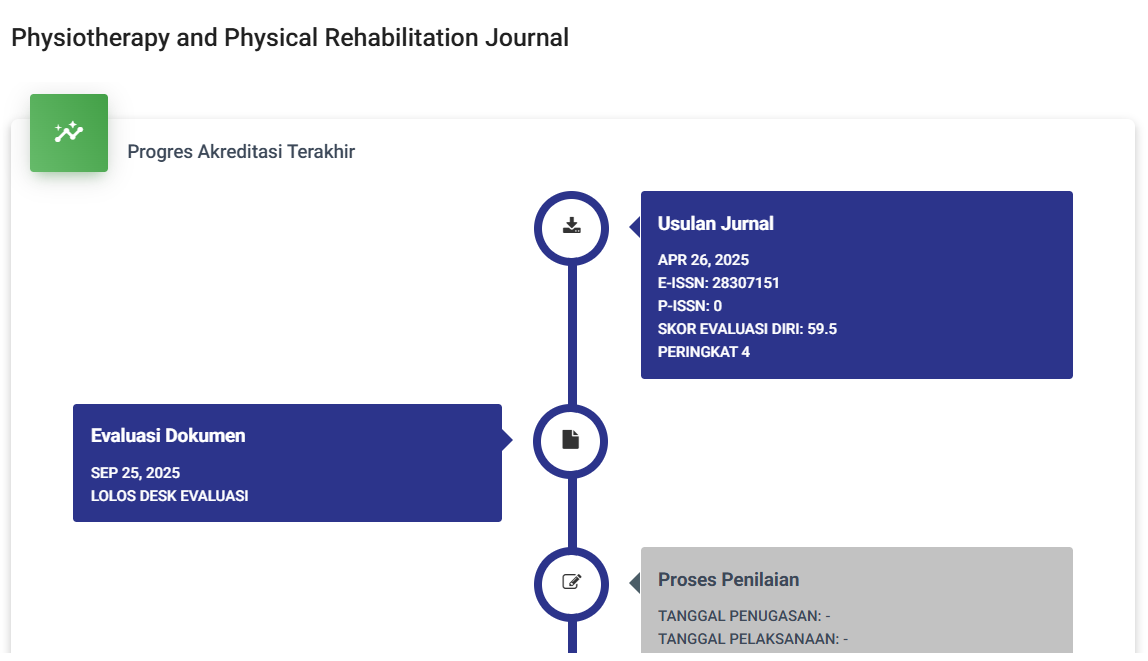Effectiveness of Neurodevelopmental Treatment to Improve Motor Function in Children with Developmental Disorders: Meta-Analysis
DOI:
https://doi.org/10.63520/pprj.v2i2.490Keywords:
Neurodevelopment, Trunk Exercise, Pediatric, Delay DevelopmentAbstract
Background: Growth delay in children is one of the most common disorders in children. It is influenced by delays in gross motor and fine motor development. The prevalence of delayed development is estimated at 5-10 per cent of the world's child population and most children with delayed development have weaknesses in all stages of their abilities. The aim in providing treatment is to improve gross and fine motor muscle function which is one of the important roles in one until two child development.
Material and Methods: This was a systematic review and meta-analysis. The data was obtained though journal screened by Science Direct database, PubMed database, and Google Schoolar database with selecting articles published in 2013-2023. The keywords used were (“Neurodevelopmental Treatment”) AND (“Child” OR “Children”) AND trunk exercise, AND “Randomized controlled Trial”. Articles were colled by using PRISMA flow diagrams and analyzed using the revman 5.3 application.
Result : Meta-analysis of 3 articles showed that NDT can increase motor function in children with developmental disorders by 0.49 times higher compared to other interventions or no intervention (SMD = 0.49; 95% CI = -0.88 to - 0.10; p = 0.01).
Conclusion: Neurodevelopmental Therapy - Trunk Intervenion Improved GMFM-B and Trunk Control Scores. Therefore, Neurodevelopmental Therapy - Exercise can be applied as an arm focus for children with developmental delays who have difficulty controlling their arms.





